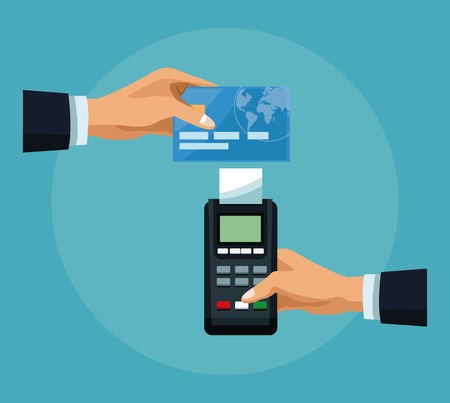Understanding Credit Card Fraud in the UK
Credit card fraud remains a significant concern for consumers across the United Kingdom, with thousands falling victim to increasingly sophisticated scams each year. According to recent figures from UK Finance, over £574 million was lost to unauthorised financial fraud in 2023 alone, with credit card-related incidents accounting for a substantial portion of these losses. Fraudsters employ a range of techniques specifically targeting British consumers, exploiting both digital and traditional channels. Common scams include phishing emails or texts that mimic trusted banks, telephone calls impersonating fraud departments, and skimming devices fitted to ATMs or payment terminals. In addition, online shopping scams and social engineering tactics are on the rise, catching out even the most vigilant individuals. Understanding how these frauds typically occur is essential for recognising warning signs early and taking proactive steps to protect your personal finances.
2. Spotting the Signs of Suspicious Activity
It is essential for UK consumers to remain vigilant when it comes to credit card security, as early detection of suspicious activity can prevent more serious financial losses. Recognising the warning signs that your card details may have been compromised is a crucial step in defending yourself against fraud. Here are some practical tips and common indicators to watch out for:
Unusual Transactions on Your Statement
Regularly reviewing your bank and credit card statements is fundamental. Look for any transactions you do not recognise, regardless of their amount. Fraudsters often test stolen card details with small purchases before making larger ones. If you spot a transaction that seems odd or unfamiliar, contact your bank immediately.
| Sign | Description |
|---|---|
| Unknown charges | Payments to businesses or locations you havent visited |
| Frequent small amounts | Multiple minor transactions in quick succession |
| International activity | Purchases made in countries you haven’t visited recently |
Banks Alerts and Notifications
Most UK banks now offer real-time alerts via SMS, email, or through their banking apps whenever a payment is made using your card. If you receive a notification about a transaction you didn’t authorise, take action immediately by contacting your bank’s fraud department. Enable all available alerts to stay informed about your account activity.
Changes to Account Information
If you notice any unauthorised changes to your account details—such as a new address or phone number being added—this could indicate someone is attempting to gain control over your account. Always verify such changes with your bank directly.
Top Tips for Early Detection
- Set up mobile and email alerts for every transaction
- Check your statements at least once a week
- Report unfamiliar transactions without delay
By staying aware of these signs and acting quickly, you can significantly reduce the risk of falling victim to credit card fraud in the UK.

3. Protecting Your Card Details Online and Offline
When it comes to safeguarding your credit card information, both digital and physical security are essential—especially in the UK, where contactless payments and online shopping are so prevalent. Here are some best practices tailored to everyday British life:
Online Shopping Safety
Always use secure, reputable websites when making purchases. Look for “https://” in the URL and a padlock symbol in your browser’s address bar. Avoid clicking on suspicious links in emails or text messages, as phishing scams targeting UK consumers are increasingly sophisticated. When shopping on British high street retailers’ websites, consider using additional authentication methods such as Verified by Visa or Mastercard SecureCode for extra protection.
Using Public Wi-Fi
Public Wi-Fi hotspots in places like coffee shops, train stations, or libraries are convenient but risky. Never enter your card details or access sensitive banking apps when connected to unsecured networks; instead, use your mobile data or a trusted VPN if you must connect over public Wi-Fi.
In-Person Transactions
Whether tapping your card at a supermarket till or withdrawing cash from an ATM, always shield your PIN from view. Be wary of shoulder-surfers—someone trying to watch you enter your details—and never let your card out of sight, especially in restaurants or pubs. Some fraudsters use skimming devices on ATMs or payment terminals, so give machines a quick once-over for anything that looks out of place before use.
Contactless and Mobile Payments
Contactless payments are widely accepted across the UK for convenience but can also be vulnerable if not managed carefully. Keep your cards in an RFID-blocking wallet to prevent unauthorised scanning and activate transaction notifications via your banking app to monitor spending instantly.
Stay Alert in Everyday Situations
Be mindful when disposing of receipts or bank statements—shred them rather than simply binning them to avoid “bin diving” fraudsters. Regularly check your bank statements and set up alerts for unusual activity, so you can act quickly if something doesn’t look right. Staying vigilant both online and offline is crucial for protecting your financial well-being in today’s fast-paced UK environment.
4. What to Do if You Suspect Fraud
If you believe your credit card details have been compromised, it’s crucial to act swiftly and methodically. The following step-by-step guidance will help UK consumers minimise potential losses and ensure the correct authorities are informed.
Step 1: Stop Further Losses
- Contact Your Bank or Card Issuer Immediately: Use the dedicated fraud hotline (often found on the back of your card). Notify them about any suspicious activity or unauthorised transactions.
- Freeze or Cancel Your Card: Request your provider to block, freeze, or cancel your card to prevent further use.
Step 2: Review Recent Transactions
- Check your most recent statements for any other unrecognised payments.
- Make a note of all suspicious transactions for reference.
Step 3: Report the Fraud
- Report to Action Fraud: Action Fraud is the UK’s national reporting centre for fraud and cybercrime. File a report online at actionfraud.police.uk or call 0300 123 2040.
- Your bank may also require you to complete a fraud claim form for their investigation.
Step 4: Change Your Passwords and Monitor Accounts
- Update your passwords for online banking and related accounts.
- Set up transaction alerts if available, so you’re notified of account activity in real time.
Step 5: Follow Up and Stay Informed
- Your bank should provide updates regarding your case. Make a note of case reference numbers and correspondence dates.
- If you notice ongoing issues, escalate your complaint via the bank’s official channels or contact the Financial Ombudsman Service for further assistance.
Quick Reference Table: What To Do If You Suspect Credit Card Fraud
| Action | Who to Contact | Details |
|---|---|---|
| Freeze/Cancel Card | Your Bank/Card Issuer | Call the number on your card or use online banking app features |
| Report Fraudulent Transactions | Your Bank/Card Issuer | Provide details of unauthorised payments for investigation |
| File a Report | Action Fraud (UK) | Visit actionfraud.police.uk or call 0300 123 2040 |
| Password Update & Monitoring | You/Your Bank’s App | Change passwords and enable transaction alerts if possible |
Taking immediate action can significantly reduce the risk of financial loss and help bring fraudsters to justice. Remember, UK banks have robust protections in place, but consumer vigilance remains essential.
5. Leveraging UK Financial Protections and Resources
Understanding the unique financial protections available to consumers in the UK is essential for staying safe from credit card fraud. One of the most significant safeguards is Section 75 of the Consumer Credit Act 1974. This legislation gives you extra reassurance when making purchases with your credit card, especially for goods or services costing between £100 and £30,000. If something goes wrong—such as a retailer going bust or failing to deliver your goods—you may be able to claim a refund directly from your credit card provider. This protection covers both online and in-store transactions, offering UK consumers vital peace of mind.
How to Use Section 75 Protection
If you believe you are a victim of credit card fraud or a disputed transaction, contact your card issuer promptly. Provide full details about the purchase and any evidence you have collected. Card providers will typically investigate the issue and, if appropriate, help recover your money. It’s crucial to keep all receipts, emails, and correspondence related to your purchase as proof.
Your Banks Fraud Prevention Teams
Most UK banks have dedicated fraud prevention teams working around the clock to detect suspicious activity on customer accounts. If you notice any unusual transactions or receive alerts about possible fraud, don’t hesitate to reach out using the official phone number found on your bank’s website or statement. These teams are trained to handle such incidents efficiently and will guide you through the necessary steps, including temporarily freezing your account if needed.
Additional Resources for UK Consumers
- Action Fraud: The UK’s national reporting centre for fraud and cybercrime. Report suspected scams at actionfraud.police.uk.
- The Financial Ombudsman Service: Offers impartial advice and can help resolve disputes between consumers and financial companies.
Key Takeaway
By familiarising yourself with these UK-specific protections and making use of resources like your bank’s fraud team and national reporting services, you can strengthen your defences against credit card fraud and respond swiftly if something goes wrong.
6. Staying Up to Date with the Latest Scams
Credit card fraudsters are constantly evolving their tactics, making it crucial for UK consumers to stay informed about the latest scams and threats. Awareness is your first line of defence. Here are some practical tips to help you keep ahead of scammers and ensure your financial safety:
Subscribe to Trusted Sources
Stay connected with official organisations such as Action Fraud, the UKs national reporting centre for fraud and cybercrime. Their website regularly features updates on current scams targeting British consumers. You can also sign up for newsletters from your bank or credit card provider—many offer scam alerts and security tips tailored to their customers.
Follow the News and Social Media
Mainstream UK news outlets like BBC News and The Guardian frequently report on emerging financial scams. Additionally, follow reputable social media accounts such as @actionfrauduk on Twitter for real-time alerts and educational posts. Engaging with these channels keeps you aware of trending threats as they arise.
Utilise Community Resources
Your local Citizens Advice Bureau often has information on recent fraud cases in your area and guidance on what to watch out for. Neighbourhood Watch groups may also share warnings about new scams circulating in your community.
Regularly Review Bank Communications
Banks in the UK are proactive in communicating new types of fraud attempts, such as phishing emails or phone scams imitating bank staff. Always read official messages from your bank—whether via post, email, or secure app notifications—to stay alert to specific threats targeting their customers.
By actively seeking out information from trusted sources, discussing concerns with friends and family, and staying curious about new scam trends, you can significantly reduce your risk of falling victim to credit card fraud. Remember: when in doubt, verify information directly with your financial institution or through official government channels before taking action.

